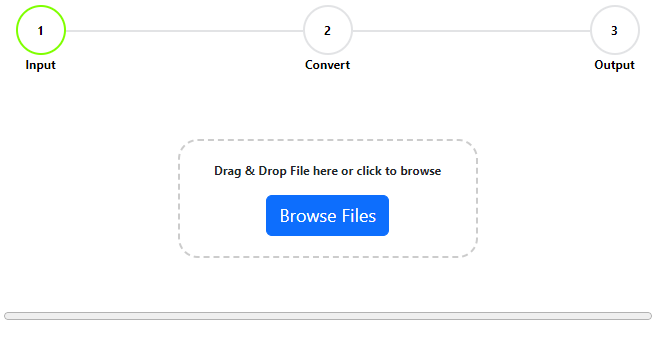GIS offers an endless variety of potential pathways for a career, it’s more than plotting data and making maps. Employers from a wide variety of fields are seeing the potential in GIS skills. Industries from engineering to agriculture, transportation and even healthcare are employing GIS graduates. The potential uses of GIS and rate of technology development means that there is plenty of room for growth in a GIS career.
What are the various GIS career paths?
GIS career paths are wide-ranging from a GIS technician making basic level analysis and maps, to a GIS specialist diving deeper into the programming and automation of the spatial analysis. Finally, the GIS managers which oversee and coordinate projects and people. All GIS roles within every sector will have the same core element – to visually connect the spatial aspect of data and use this to analyze and help inform decision-making processes. Here are just some of the potential GIS roles you could find in various industries.
GIS Careers In Government (Federal, state and regional)
A GIS role within the government could be quite diverse, spanning various industry types including transportation, town planning, natural resource management, and healthcare. While a specialized role within the military may include airborne radar imagery or drone surveillance technology. A role within the local government may include something more like eco-tourism support or facility and asset management.
GIS Careers In Utilities (Electrical, telecommunications)
Working with utilities companies would have you working on tasks such as optimizing electricity networks, emergency response preparedness and power outage support. Telecommunications providers require GIS personnel to better understand the network and its usage, monitor Wi-Fi hot spots and collect data about customers that helps to improve the services provided to them. hot spots
GIS Careers In Academic
In the academic field, you would expect to do something along the lines of researching the effectiveness of new technology, teaching and mentoring up and coming GIS graduates. To work and teach in an academic capacity, typically requires a higher level of education like a PhD.
GIS Careers In Environment and natural resources
The environmental sector is well known for its use of GIS technology from wildlife tracking and monitoring to forestry management. GIS and remote sensing can be used to assess environmental damage and manage extraction activities among many more.
GIS Careers In Emergency and public safety
The use of GIS in emergency management is quite critical to distributing resources and equipment more efficiently. Police, fire and ambulance all use GIS services to connect teams to people in need. Police can use GIS to analyze crime rates and distribute resources and patrols accordingly. Emergency planning, mitigation and preparedness will use an element of GIS to analyze and formulate the best plans for specific hazards.
GIS Careers In Agriculture
The growth of precision agriculture in recent years means that many jobs have popped up connecting GIS and agriculture. A GIS professional could find work in precision farming support, remote sensing technology and equipment use, soil surveying or even groundwater monitoring. Find out more about how GIS and remote sensing can be used in the field of soil science.
GIS Careers In Transportation And Navigation
As a transportation GIS analyst, you would be looking at the performance and health of transport networks. This includes highway maintenance, intelligent transportation systems or even lock and canal management. The transport industry also involves sea transport and marine navigation.
GIS Careers In Surveying, Engineering And Construction
All types of construction use surveyors, whether it’s road or building construction. GIS is used for planning and engineering to land boundary determination.
GIS Careers In Mining And Oil
The mining, oil and gas industries use GIS for asset and resource management. Land management, well planning, pipeline management and mineral exploration all require the skills of a GIS technician. In regards to emergency planning GIS is required for oil spill management and response. At the closure of a mine site, GIS is a crucial component of the environmental remediation that is often legislated.
GIS Careers In Health And Epidemiology
At a basic level GIS enables better understanding of disease spread and the environmental factors them, but also improved healthcare communication. GIS analysts are used for disease monitoring and healthcare planning and delivery support. Find out more about how GIS can be used to manage and monitor disease.
GIS Careers In Archaeology And History
Archaeologists have been using GIS for quite some time now. Since archaeology has a significant spatial element and investigates the movement and behavior of humans over time, geospatial mapping is a valued skill set. Remote sensing offers some unique advantages to archaeologists. By using remote sensing technologies, they are able to collect information about places or objects at or under the ground, without having to disturb the ground.
Much more
The list goes on, businesses use GIS to adapt to customer demand and market needs, including where to expand storefronts. Staffing requirements for large companies can also be analyzed using GIS. The real estate industry also utilizes GIS to study the housing market changes and provide amenity information and location-specific advice for prospective buyers.
GIS Career Salary Expectations
The salary range for a GIS professional could range anywhere from 40,000 to 100,000 a year. With an entry level GIS technician earning around 40,000 per year and a top-level GIS manager earning upwards of 100,000 a year.
Whether you work for the public sector or private enterprise will also impact the salary range. Government jobs often don’t provide the highest remuneration package but are more likely to offer workplace flexibility and other perks.
If you’re expected to negotiate your salary with a company, do your research. See what similar roles with similar job descriptions and expectations are paying.
Where Is The Demand For GIS Jobs?
In general, you can find jobs in GIS everywhere, however, there are often noticeable spikes of job postings in certain areas. This is certainly the case in the US where there are higher job postings in and around Washington DC, northern Colorado, Texas and southern California.
With Washington DC being the seat of government in the US, that means many GIS analyst job opportunities within the various government agencies. Northern Colorado is known to be a hub for geospatial companies almost like the Silicon Valley of GIS. In this location there is a high density of government agencies, private companies and academic institutions all of which were involved in the grassroots development of the GIS industry. In Texas, a majority of job postings are not surprisingly linked to oil and gas. Finally, the southern California hub of job postings are closely connected to the many local governments, startups and consultancies based in and around Los Angeles. Of course, the ESRI headquarters are also located there.
Elsewhere in the world GIS jobs are abundant in local and federal government departments, but also in private industry. As with any job market there is an imbalance with some areas having more or less jobs than others. Typically, someone with more experience will be more competitive, whereas a graduate would need to look to areas with plenty of job opportunity. Some quick market research will show you where most of the jobs are for your level of experience.
Why GIS Makes For A Great Career Choice
The continued growth in the field of GIS is a real incentive to join the industry but there are many other reasons why GIS is a great career choice.
Quite simply if you love maps and a mixture of outdoor and indoor work, GIS could be right up your alley. If you get a real kick out of problem-solving and enjoy the mental challenge of finding different solutions to displaying or collecting geospatial data. You’ll thrive in a GIS career. GIS gives you the ability to combine a curiosity of the world around you, science and a mode of communication to connect people. GIS empowers people.
If you consider yourself a bit of a gadget nerd, someone who loves all things tech, then GIS and remote sensing are your niche. The industry is rapidly bringing onboard advanced technology and equipment. There is the opportunity to work on the frontline of drone and imaging technology.
Research has shown that what makes people truly satisfied in a career is the reward they feel from the job. In many jobs results are difficult to identify or painfully slow to achieve. In GIS the tiresome work of building and displaying data will eventually pay off, and give you that sense of reward and achievement. By optimizing a logistics route or identifying and monitoring soil loss you are actively involved in decision making and policy formulation for the better. This is the kind of sense of achievement in a job that makes people feel fulfilled and content.
The Future Of GIS Careers
The GIS industry is growing at a rate of 35% annually, now is certainly the time to kick start your career in GIS. The technology, software and equipment are advancing at a rapid rate. Specific technologies like cameras, imaging and drone capabilities are improving to a point we thought impossible previously.
With the exception of the Covid-19 pandemic there is an undeniable focus on climate change and reducing emissions globally. As a result, many industries are ramping up investment and research into renewable technology. The development of GIS careers is inherently linked to green development, renewable energy and optimizing environmental conservation. There will be no shortage of GIS jobs into the future for those willing to get involved.





